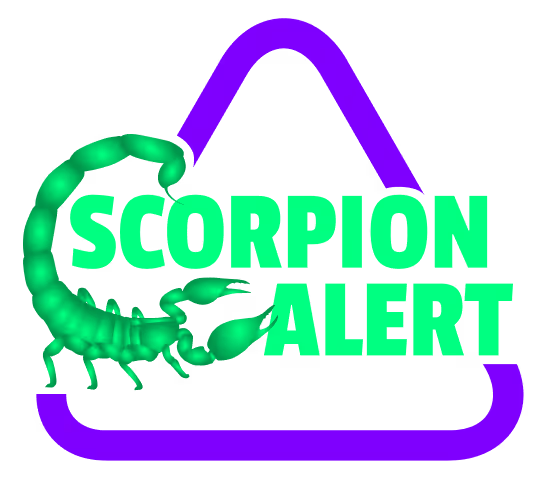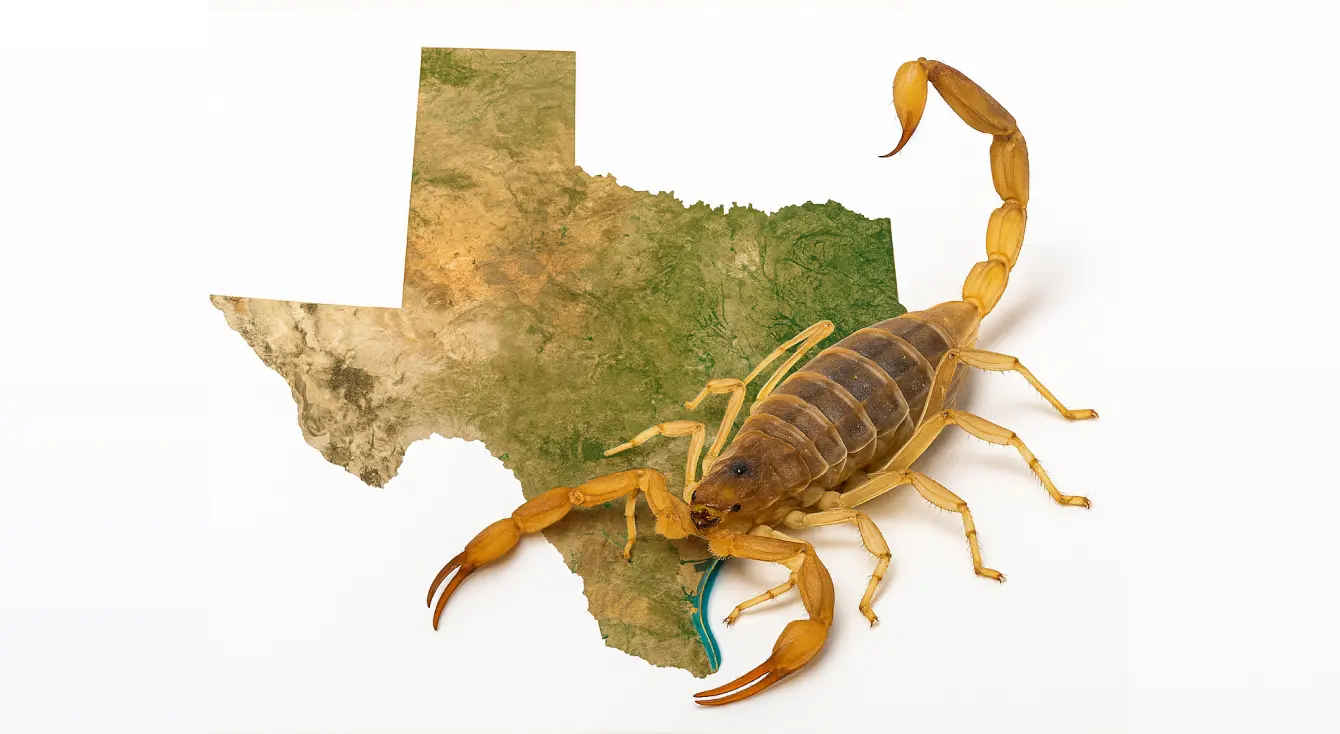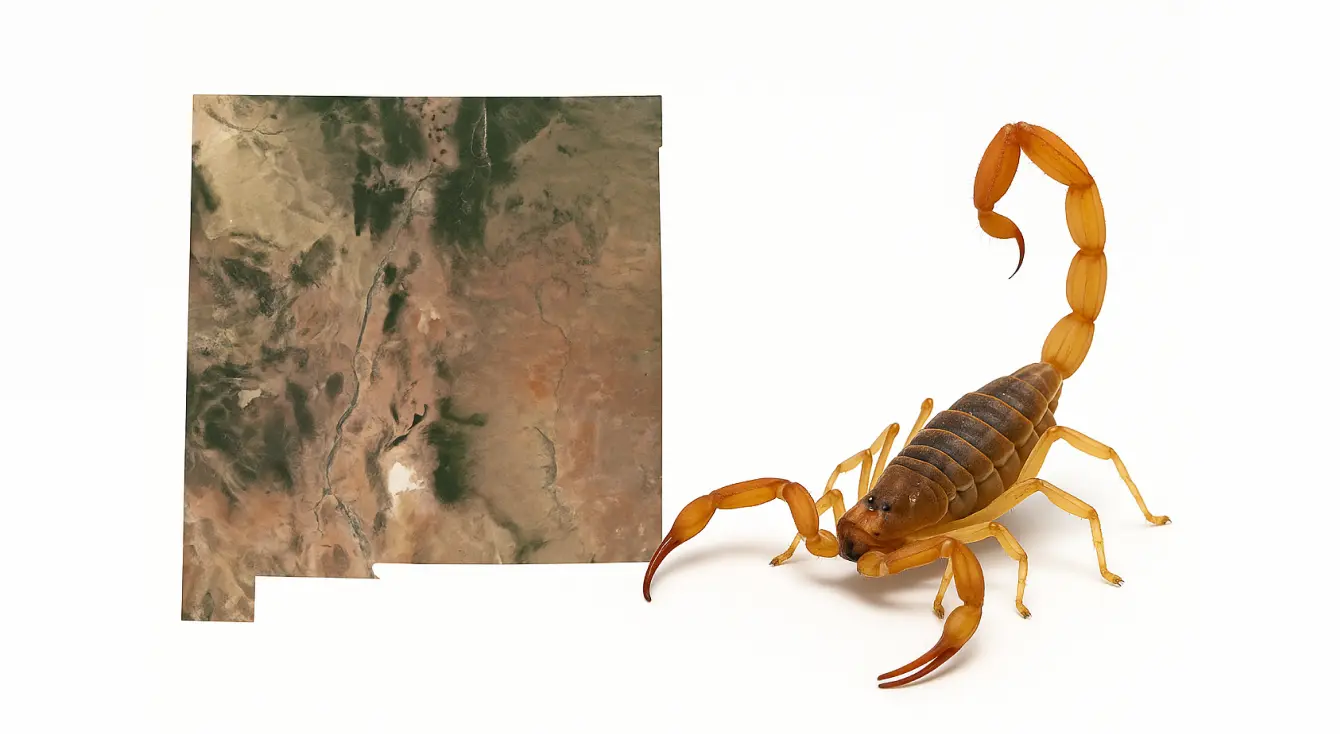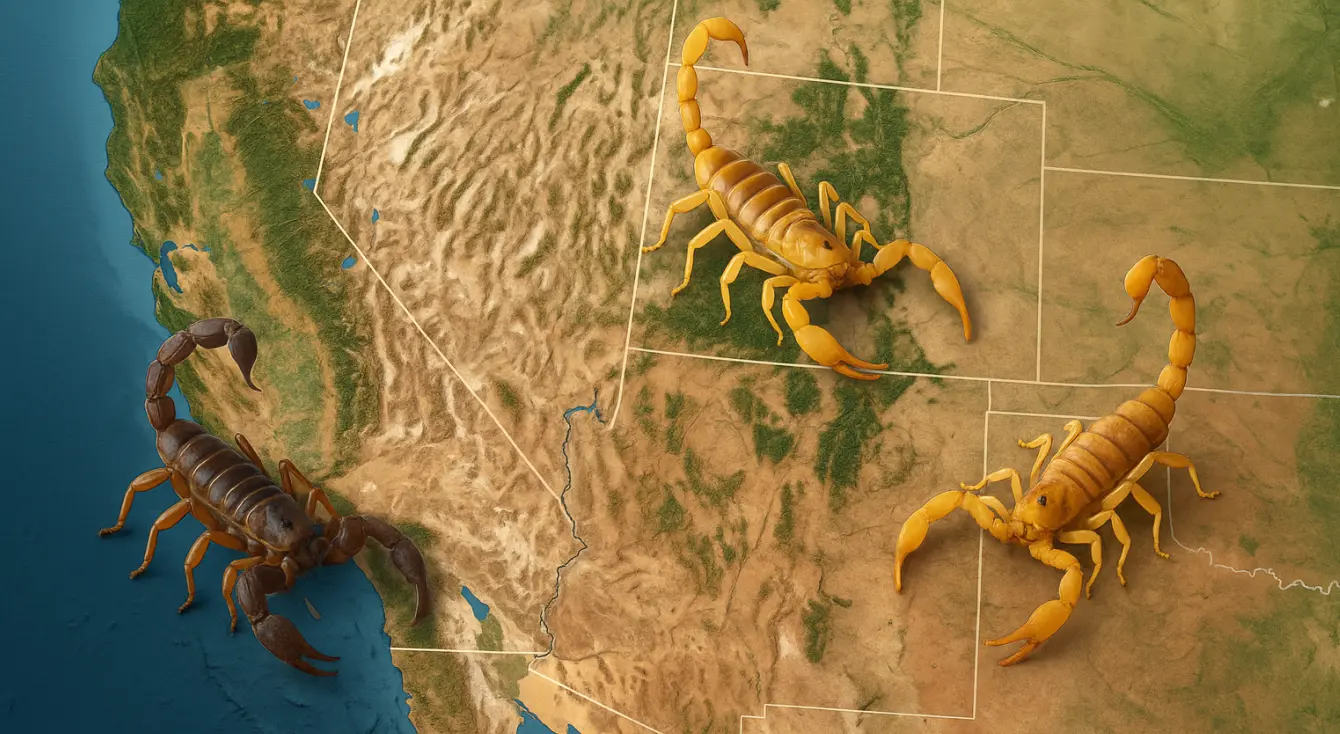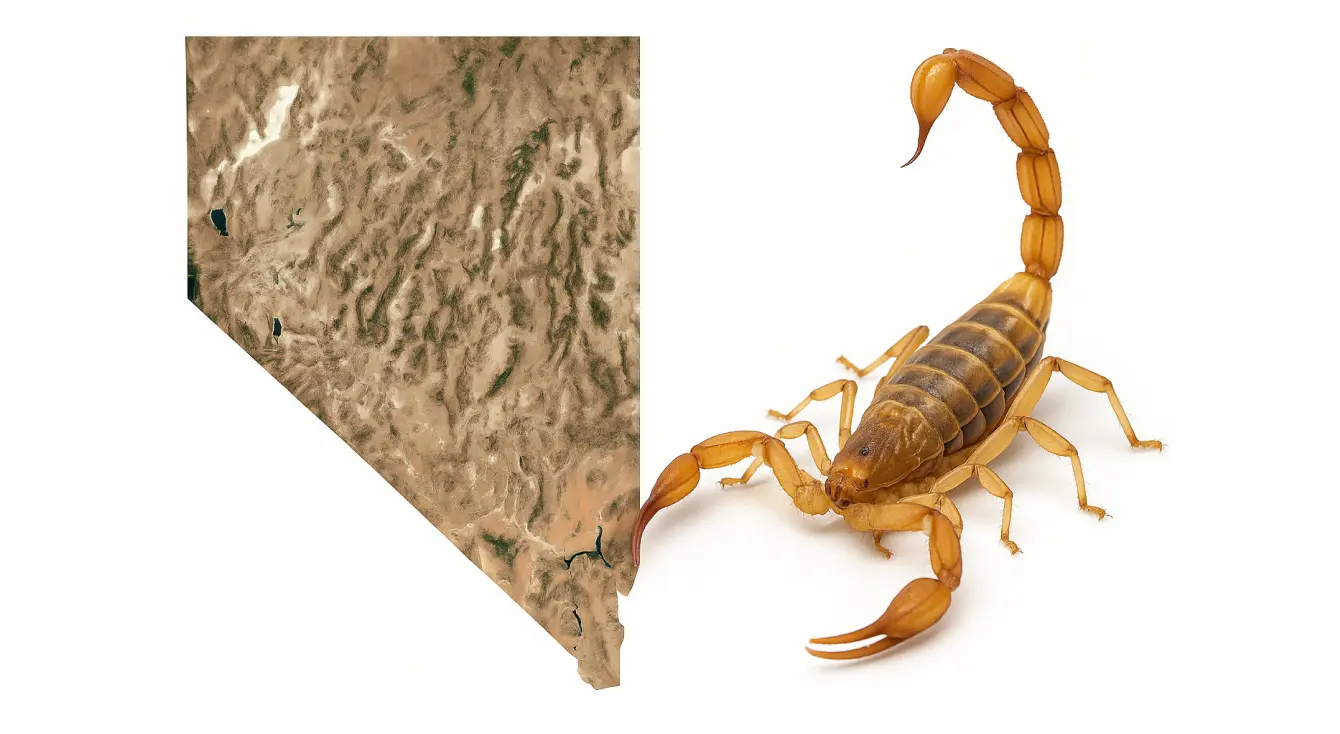Texas is home to a surprising number of scorpions, particularly in the central, western, and southern parts of the state. From Hill Country to El Paso and down to the Rio Grande Valley, these tough arachnids thrive in hot, dry conditions and love the shelter of Texas landscapes.
Here are the most common scorpions Texans are likely to encounter:
1. Striped Bark Scorpion (Centruroides vittatus)
By far the most common species in Texas, the striped bark scorpion is a familiar sight around homes, gardens, and even indoors.
Key traits:
- Pale yellow to tan body with two dark stripes down its back
- Slender build with thin pincers
- Up to 2.5 inches long
- Climbs walls and can be found in attics, closets, and beds
Venom risk: Mild to moderate. Painful sting, sometimes accompanied by swelling or numbness. Rarely requires medical treatment unless allergic.
2. Texas Cave Scorpion (Pseudouroctonus reddelli)
This species is primarily found in central Texas, especially around limestone-rich areas and caves.
Key traits:
- Dark reddish-brown body
- Prefers caves and humid crevices
- Usually stays outdoors but may wander into damp basements
Venom risk: Low. The sting is mild, similar to a bee sting.
3. Lesser Stripetail Scorpion (Chihuahuanus coahuilae)
Common in West Texas, this desert species prefers dry, rocky terrain.
Key traits:
- Yellow-tan color with faint striping on the tail
- Small, around 1.5–2 inches
- Ground-dweller that hides under rocks, logs, and yard debris
Venom risk: Low. Stings are mild and not considered dangerous.
Where They Hide in Texas Homes
Scorpions in Texas tend to seek out dark, quiet, and undisturbed areas. You might find them:
- In closets, garages, and attics
- Under baseboards or furniture
- Inside shoes, towels, or bedding
- Around woodpiles, stone walls, and foundation gaps
How to Keep Scorpions Out
- Seal cracks and gaps around doors, windows, and utility entries
- Reduce yard clutter, especially wood and brush piles
- Install Scorpion Detectors in bedrooms, closets, and garage areas
- Use a blacklight flashlight to check for glowing scorpions at night
- Keep bedding off the floor, especially in rural areas
In Texas, scorpions are just part of the landscape—but with a little know-how, you can keep them from becoming part of your household. Understanding what to look for and where they hide is the first step toward peace of mind.
